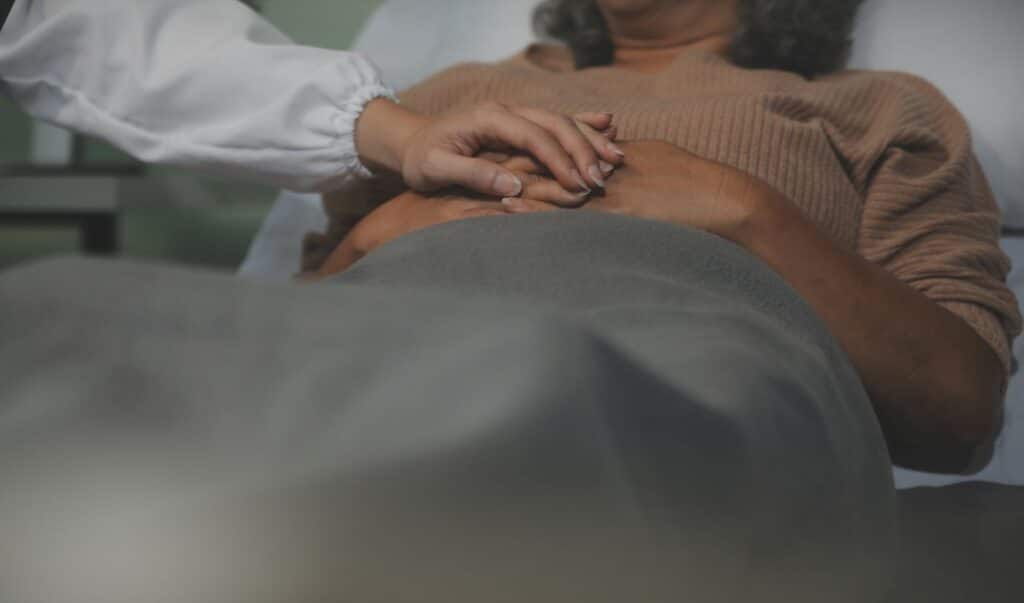This week, the Victorian Government released its findings from the Inquiry into women’s pain, the first of its kind in Australia, titled ‘Bridging the Gender Pain Gap’.
This long overdue inquiry heard from more than 13,000 women, gender-diverse people, clinicians, and experts, uncovering a disturbing yet expected truth: women feel inadequately treated by the medical system. Their pain and concerns are often dismissed, misdiagnosed, ignored, or met with insufficient pain relief. The 27 recommendations and the Victorian government’s commitment to act to close the gender pain gap represent a turning point.
We shouldn’t be surprised by these findings. For centuries, medicine has measured women’s bodies against a male standard, treating them as atypical. It wasn’t until 1993 that women began to be included in clinical trials. The gender data gap in medicine, as explored in Caroline Criado Perez’s book Invisible Women, has profound effects on women’s health. Women are more likely to be misdiagnosed, especially in cases like heart attacks where symptoms differ by sex. Drug trials often exclude women, leading to dosage errors and increased side effects. Medical education also tends to prioritise male anatomy, leaving healthcare professionals less equipped to recognise female-specific symptoms. These systemic biases mean women face greater health risks, receive less effective treatment and are often overlooked in both research and practice.
The Inquiry heard deeply personal stories from women about the impacts of pain on their lives from physical suffering to mental health struggles, and the toll it takes on their jobs, relationships, and overall wellbeing. This Inquiry marks a pivotal moment. We now have a duty to honour the voices of all the women and girls who shared their experiences and to design a medical system that reflects these lived realities.
This is also about redefining the very concept of pain. Not all women and girls experience pain the same way, and not all pain is physical. What makes this Inquiry unique is its inclusion of women’s voices. In Victoria, organisations like Women’s Health in the South East (WHISE) have played a pivotal role in ensuring that women and girls in their communities are heard. WHISE, a not-for-profit founded in 1992, provides health promotion, advocacy, support, and education services for women’s health in Melbourne’s Southern Metropolitan Region. They work with governments, organisations, education providers, health practitioners, and community groups.
Women’s Health in the South East (WHISE) has built deep trust with women and girls across Melbourne’s south-east, making them a vital voice in shaping a health system that works for everyone. As Kit McMahon, CEO of WHISE, powerfully stated, “The Inquiry lays bare a truth that women have lived with for generations — that our health system still fails to recognise and respond to women’s pain.”
In their submission to the inquiry, WHISE elevated lived experience through local forums and partnerships with community organisations such as Afri-Aus Care and Wellsprings for Women, as well as local MPs. These forums, attended by both the Premier and Minister for Health, surfaced stories from refugee and migrant women, young women, and women with disabilities—highlighting the additional barriers they face in accessing quality care. A common thread across all consultations was the often-unseen impact of intergenerational trauma, gender-based violence, and childhood sexual abuse, pain that is rarely acknowledged in mainstream healthcare but deeply felt in communities.
To truly reshape how we understand and respond to women’s pain, community engagement must be central to healthcare reform. This is an opportunity for the governments in Australia to move beyond traditional models and invest in approaches that centre lived experience.
WHISE and other organisations have long-standing relationships and expertise in community engagement that positions them well to lead this shift. Their work with women and particularly migrant and refugee women, many of whom face isolation after leaving close-knit communities, demonstrates the value of culturally responsive, place-based support. WHISE has delivered evidence-based health promotion programs, including support groups for women navigating perimenopause and menopause, where healing is fostered through social connection rather than clinical intervention alone.
While broader reform across medical, research, and education systems is underway, women need safe spaces to connect and share now. Sam, a community member from south-east Melbourne who contributed to WHISE’s audio submission to the Inquiry, reflected on her experience of living with debilitating pain and undergoing a hysterectomy in her forties:
“If I could have one thing, it would be a network of people that have been on this journey with you… not alongside you, but with you. When I say with you, I mean they’ve experienced it as well… having that lived experience. If we could have that in our society—groups of people that can come together and talk—yes, what a difference that would make. That is part of women’s health… and should be something women have access to in the healthcare system.”
Sam’s words speak to the power of peer connection and the urgent need to embed community-led models, like those WHISE already delivers, into the future of women’s healthcare.
A holistic response to women’s pain must include mental, emotional, and social wellbeing. WHISE’s programs already reflect this integrated approach. By investing in organisations like WHISE, governments can build a health system that is not only inclusive but transformative. One that listens first, then acts with care and relevance and reflects the diversity and complexity of women’s lives.


